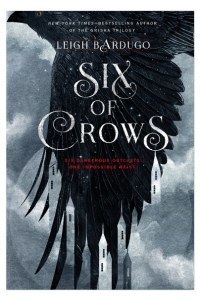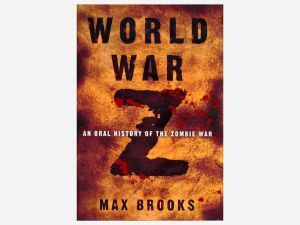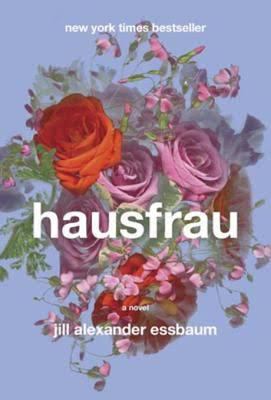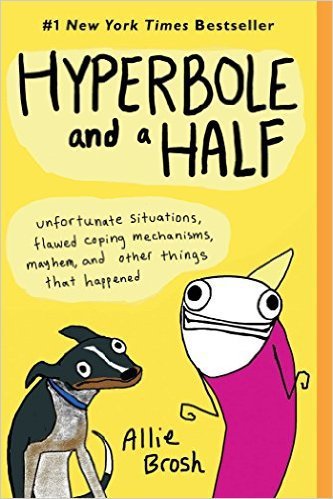Jillian Getting's Blog, page 2
January 8, 2017
Getting Cozy with Beasties
Iona Adair Scottish Mysteries #1
By Polly Letson
Iona Adair thought she had a simple life, with her job, draughty flat and her sweet, black and white cat. But when you are moonlighting for a secret organisation aiming to destroy all evidence of the paranormal, whilst working as a parapsychologist at the world renowned Diederich Institute of Parapsychology, things are bound to get complicated. Throw into that mix an uncanny ability for mind control, her baffling spirit guide, a fake clairvoyant mother, as well as some naked dead bodies, and mayhem ensues.
Iona is forced out of the safe world of Edinburgh academia by her new Texan boss and is suddenly in the field, exploring a small Scottish town that believes the Beast of Badnoch is behind the spate of recent disappearances. Will her dishy colleague Andy find out that the psychic he’s investigating is her mother? And will that change how he feels about her? In this, the first of the Iona Adair Scottish Mysteries, Iona finds out that the supernatural world is far more dangerous and expansive than she could possibly imagine, even if it does have some very charming characters, like blood drinking Henry, a bonafide ancient techno-geek.
The supernatural world has never been funnier, sexier or more tartan.
Via Goodreads
I feel like many female protagonists in cozy mysteries need to have poor social skills and be unable to interact well with others, and that over the course of the book(s) they begin to open up and learn things and trust people. Sometimes that becomes frustrating because a confident woman or an extrovert can be an amateur sleuth as well. Well, I suppose some cozy mysteries I’ve read have extroverts. And maybe it’s because I read so many book themed cozies that the sleuths are introverts. And I get it – I’m an introvert. But it’s a theme I’ve found and I wonder what that means about readers of cozies. Maybe we all feel a little set apart from others or can sympathize with the difficulties in opening up to new people so seeing a slightly heightened version of this in books, and seeing that version succeed, is helpful. Something to keep pondering.
Now, Iona Adair has a good reason to withhold herself from others; her psychic gift sets her apart. She also has a spirit guide she can’t speak about so there is much of her life that is necessarily secret. She doesn’t seem to have any friends, not even her spirit guide.
(That was a little confusing. If you’ve had a spirit guide since childhood, wouldn’t you have worked out the relationship more by the time you’re an adult? Iona learns so much about Rain in the book that it made me wonder why she hadn’t learned it earlier. Maybe that will be addressed in future books.)
She shares an office with Andy, a colleague at a parapsychology institute. There’s more than meets the eye with him. I’d hoped Iona would realize she can’t seem to use her mind control on him but that never happened. Again, maybe in future books.
Her job at the institute is a cover for her real job with a secret organization dedicated to keeping paranormal gifts, etc. a secret. She modifies students’ research results to hide legitimate findings, for example. Iona is sent to a location where a rumored beast has attacked and killed several men. While bumbling through that mystery she meets Henry, a vampire; she didn’t even know vampires exist. While she’s attracted to Andy, and he is a lovely man, Henry is someone she can talk about her secrets with. He has his secrets as well. It makes for a nice romantic triangle, although I think she can trust Andy.
The book was an enjoyable enough mystery with likable and engaging characters. I would have liked to feel more of the setting of Scotland but that’s a personal thing since I love that country so much. There were a lot of unanswered questions – about Iona’s abilities, about Rain, Andy, the organization she works for. I know series are meant to have subplots that slowly reveal over several books. I think I wanted to know more about Iona’s world and her struggle between her real, secret job and her role at the institute. Having that information might have grounded the story and her struggles a bit more.
Read it for Iona’s daft mother, her inconsistent spirit guide and her world, which is so much more exciting than ours.


January 3, 2017
Some Sneaky, Impressive Writing
(Shetland Island #1)
by Ann Cleeves
Raven Black begins on New Year’s Eve with a lonely outcast named Magnus Tait, who stays home waiting for visitors who never come. But the next morning the body of a murdered teenage girl is discovered nearby, and suspicion falls on Magnus. Inspector Jimmy Perez enters an investigative maze that leads deeper into the past of the Shetland Islands than anyone wants to go.
via Goodreads
There are definitely spoilers ahead as I want to talk about the various points of view in the book and that means revealing the killer.
Ann Cleeves uses a close third person point of view in Raven Black to circle around the mystery of the murder of Catherine Ross, a teenaged newcomer to Shetland.
Magnus Tait is the first perspective and he is a worrisome one. He knows he has trouble communicating sometimes and can make people feel uncomfortable by smiling at the wrong time. He is also very aware of pretty girls, including Catherine Ross whose black hair entrances him. Magnus has lived on Shetland his entire life.
Then Sally Henry, Catherine’s best friend and an islander, moves a bit back in time to recount how she and Catherine stumbled to Magnus’ house on New Year.
Fran Hunter, a mother who moved back to Shetland to raise her daughter close to her ex-husband, finds Catherine’s body at the bottom of the hill by Magnus’ house. Enter Inspector Jimmy Perez, a transplant from nearby Fair Isle.
While the general tone of the book remains the same with each chapter, the close third person allows the reader to get in the head of each character. Magnus is concerning and confused. Fran worries and tries to do her best. Perez struggles with his urge to be a policeman and his yearning to return home to more remote Fair Isle.
And Sally is unperturbed, which I have to say, I didn’t pick up on right away. She isn’t a wreck like one might expect, more in shock. Although, I just went back to Sally’s first chapter after Catherine’s murder and everything is there. (Yes, Sally is the killer.) It seems so obvious now.
“When Sally got in from school her mother told her about Catherine Ross, but rumours had been flying around Anderson High since midday and it was all anyone had been talking about on the bus. Sally pretended it was a surprise though.”
See, it’s right there! But Cleeves buries the lede in the following sentence.
“She spent her life pretending to her mother. It had become a habit.”
And a couple of pages later, when Inspector Perez arrives to speak with Sally:
“‘Tell me about Catherine,’ he said. ‘What was she like?’”
Sally hadn’t been expecting that. She’d thought there’d be specific questions: When did you last see Catherine? Did she mention a row with anyone? How did she seem?
She hadn’t practiced the answer to this.”
It’s shocking to go back and realize what I missed. Because it seems so obvious now, I’m trying to figure out what made Sally’s reactions reasonable. By this point we know her relationship with her schoolteacher mother is fraught so ‘pretending’ with her mom isn’t strange. And expecting to be interviewed by the police about your best friend’s murder would probably cause you to think about what they’d ask you.
I find this technique, which is woven throughout the book, to be very impressive. I never expected the murderer to be one of the perspectives. Usually when a writer does that we learn who the killer is early on and the story is about the killer’s attempt to get away with it or do more bad things. I had a couple of ideas for the killer but never once considered Sally.
On the flip side, the reasons for Sally killed Catherine are a bit weak, but if I think about it as a real world event as opposed to a story, it’s just sad and scary. Sally had problems with Catherine even though she was her only friend. Sally was an outsider due to her mom teaching everyone she knew for years. In small, insular Shetland where everyone knows everyone’s business, making friends with a new arrival was the best she could do. But she didn’t like Catherine. Catherine wasn’t a nice person and when she laid into Sally about her crappy taste in men, Sally strangled her to shut her up.
From a storytelling point of view, Sally’s reasons felt small but murder does happen that way which makes this all feel very real, like it could happen.
So read Raven Black for some excellent writing – even if you now know the killer, it’s still very worth it – and read it to learn about the struggles of living in a small, insolated and insulated community.


January 2, 2017
A Victorian Psychic Solves a Mystery
[image error]The Hanged Man
(Her Majesty’s Psychic Service)
by P.N. Elrod
On a freezing Christmas Eve in 1879, a forensic psychic reader is summoned from her Baker Street lodgings to the scene of a questionable death. Alexandrina Victoria Pendlebury (named after her godmother, the current Queen of England) is adamant that the death in question is a magically compromised murder and not a suicide, as the police had assumed, after the shocking revelation contained by the body in question, Alex must put her personal loss aside to uncover the deeper issues at stake, before more bodies turn up.
Turning to some choice allies—the handsome, prescient Lieutenant Brooks, the brilliant, enigmatic Lord Desmond, and her rapscallion cousin James—Alex will have to marshal all of her magical and mental acumen to save Queen and Country from a shadowy threat. Our singular heroine is caught up in this rousing gaslamp adventure of cloaked assassins, meddlesome family, and dark magic.
via Goodreads
The Hanged Man is a mash up of genres – mystery, historical fiction, paranormal, romance, a touch of steampunk – that blend together into an adventurous murder mystery.
The prologue grounds us in Victorian England; however, not the Victorian England we know from history books. The Queen married a peer, not Albert, and instituted progressive policies such as granting the women’s vote. She also created Her Majesty’s Psychic Service to employ psychical gifts to protect the realm from supernatural threats. This alternative history sets up the premise – the existence of a psychic reader who works for the crown and with the police – while also creating new tensions between genders. Some men don’t appreciate the Queen’s equality bill.
The paranormal element is interesting. Our protagonist Alexandrina “Alex” Pendlebury is a psychic reader who can detect emotional residue from environments. This comes in handy shortly after a murder, for example. Her new driver, Lieutenant Brooks, is new to the Service and his power of prescience. There is also a Seer who delightfully helps as she appears to hinder. The back half of the novel introduces some other supernatural elements which will certainly come into play in future installments.
The romance has a light touch, which I appreciated. It is obvious that Lieutenant Brooks thinks very highly of Alex and since she can pick up on emotions around her, this is a bit disconcerting. As it’s not a full-on romance novel, this element of the story is a low-burning subplot that hints at more by the end. Their relationship was professional even as I wished for more because Alex is slowly finding a way to open up. Her psychical gift makes it difficult to be around people without a mental wall in place to hold back their emotions and that helpful mental wall is also a barrier.
I hope to see more steampunk elements in future books. The main one that appears is an air gun that sounds absolutely terrifying due to its silence. Again, there are third act surprises I won’t write about which are more in the steampunk vein but it’s all deftly handed and peripheral to the ultimate story which is the mystery.
Elrod juggles the multiple mysteries in The Hanged Man well. There is the initial case that Alex goes to read and learns is her father who she hasn’t seen in ten years. (Mysteries 1 and 2 – who killed her father and why didn’t he contact her to let her know he was back in town?) Then men with air guns show up and start shooting – mystery number 3. I won’t go any higher or risk spoiling the entire fun of the book. Needless to say, the mysteries build – one even becomes a conspiracy – and nicely resolved by the end.
Alex Pendlebury is a clever woman who is compelled to see things through. Her father’s death is the instigating force in this novel and I look forward to seeing what compels her in the next.


December 30, 2016
You’ll Wish You’d Studied Chemistry
By Stephenie Meyer
She used to work for the U.S. government, but very few people ever knew that. An expert in her field, she was one of the darkest secrets of an agency so clandestine it doesn’t even have a name. And when they decided she was a liability, they came for her without warning.
Now, she rarely stays in the same place or uses the same name for long. They’ve killed the only other person she trusted, but something she knows still poses a threat. They want her dead, and soon.
When her former handler offers her a way out, she realizes it’s her only chance to erase the giant target on her back. But it means taking one last job for her ex-employers. To her horror, the information she acquires only makes her situation more dangerous.
Resolving to meet the threat head-on, she prepares for the toughest fight of her life but finds herself falling for a man who can only complicate her likelihood of survival. As she sees her choices being rapidly whittled down, she must apply her unique talents in ways she never dreamed of.
via Goodreads
I devoured this book.
It begins with a woman on the run and called back to a former government agency that tried to kill her. She is tired of running, having killed the three assassins sent to kill her, and takes a chance. Nothing goes well after that.
The pacing of the plot is engaging. The timeline is short so the lengthy book consists of meticulously detailed scenes showing Alex how she has learned to stay alive, how she works as an interrogator and how she learns to trust again through the twin brothers she meets.
The fight scenes were realistic enough, especially how people get hurt. Alex gets a good beating early one and her face is a wreck which informs some decisions. She is later able to use the injuries to her advantage; again, in line with the short timeline and having things pay off.
I like how Meyer got into the work Alex did as the Chemist – an interrogator known for causing pain through drugs – while deftly avoiding ridiculously complicated science. There are some spy books, or even sci-fi books, that delve into those sorts of details and with the right author it can be very enjoyable. Meyer referenced enough details to make Alex’s knowledge and work feasible.
Speaking of feasible, I guess it’s not a good spy novel without an insane conspiracy that goes all the way to the top. During the climactic fight scene, I actually forgot all about the man at the top because the squabbling down below was so engaging. The conspiracy was wrapped up fine. Conspiracies are difficult in general to make plausible and this one worked well enough. The man at the top had historical ties to some nasty stuff that Alex and her unlikely ally, in their separate agencies, both learned too much about so had to be eliminated. Ruthless bosses – they’re the worst, especially when they want to kill you for simply doing your job.
The love story woven in between the spy games is a bit unlikely since it’s based on an extremely understanding and forgiving man and love at first sight. It was a bit tiresome at times when Alex protests yet again that she has no adult communication skills due to her upbringing and isolated life. Trust issues due to living on the run from a hit seems like a great reason to have problems with relationships so the extra stuff wasn’t necessary.
I appreciated the epilogue which wrapped up the story with a happy ending while still maintaining the characters’ reality.
This is a super fun book if you like spy and thriller genres, and a strong female protagonist who isn’t afraid to show her intellect and skill.


October 31, 2016
On Endings within Series
 I abruptly finished Six of Crows by Leigh Bardugo over the weekend. Despite the change in point of view, which didn’t feel like an indicator of an ending due to a pretty fluid third-person POV throughout the book, when I turned the final page I was surprised to find it was finished.
I abruptly finished Six of Crows by Leigh Bardugo over the weekend. Despite the change in point of view, which didn’t feel like an indicator of an ending due to a pretty fluid third-person POV throughout the book, when I turned the final page I was surprised to find it was finished.
I had put the request in from my library quite some time ago so forgot Six of Crows is billed as the first in a series. I jumped into a fantastical world dealing with class and money and family and trust. (I feel like I should point out that the supposedly seventeen year old or so characters all seemed like adults to me, even with their constant yearnings to go home. Adults can want to go home too. Maybe because they grew up in bad circumstances or in the military from a young age they grew up fast but I read all the members of the crew as adults which felt strange for a YA novel. But I digress.)
It seemed a hefty book based on the slower uptick of my percentage read. As the main action resolved, there was a twist. Very exciting! I looked forward to seeing how it was resolved. Cue point of view change and ‘The End’ or, to be apt, ‘To Be Continued’.
Now, I’m all for a cliffhanger. I enjoyed the season six finale of The Walking Dead so I must love a cliffhanger. But Six of Crows for some reason didn’t feel satisfying at the end. I honestly don’t know what I would recommend to change the ending short of writing how the final twist is solved, although I presume it will take at least another book to do that.
Could it be a byproduct of reading so many mystery series recently? While there are character evolutions and subplots that weave through mystery series, a mystery and/or murder is solved by the end of the book. I might be left waiting for the next book to see what happens to the protagonist but I know the mystery has been solved. I’m thinking of the Cormoran Strike novels, Victoria Thompson’s Gaslight Mystery series and the Aunt Dimity series.
Six of Crows is definitely not a mystery and isn’t trying to be. It feels unfair to line up the two genres against each other.
Other series I’ve enjoyed that had through lines while wrapping things up each book are Outlander and the Pink Carnation series. Outlander is massive and captures people’s lives over the course of the series so there are most definitely big things happening and some tense moments toward the end of certain installments. The Pink Carnation series has a modern-day historian researching a different British Napoleonic spy in each book with the historian’s love life being the through line. For both series, the main action gets resolved one way or another with some breadcrumbs to keep you waiting for the next book.
As I’m writing this, I think I’m getting a clearer sense of why the ending felt so abrupt. It was the change in point of view. It distanced me from the main characters even though they were in the scene and even though I learned enough to know what the next part of their adventure will be. Maybe that was what threw me – leaving the crew I had come to know and like over the course of the novel.
It ultimately comes down to personal preference. Bardugo made a choice for the ending. It felt off to me but didn’t take away from the overall experience of the book. I became invested in the characters and want to know what happens next, which is probably why it felt all the more unexpected to leave them.


October 28, 2016
The Moments that Stay with You
 After hearing Max Brooks on Nerdist, I was interested in listening to the audiobook of his novel World War Z. He mentioned getting a variety of actors, including some family friends, to read the various sections. I hadn’t realized the book was a series of interviews as opposed to a more linear, plot-based story. I don’t listen to audiobooks often but this premise sounded too interesting to pass.
After hearing Max Brooks on Nerdist, I was interested in listening to the audiobook of his novel World War Z. He mentioned getting a variety of actors, including some family friends, to read the various sections. I hadn’t realized the book was a series of interviews as opposed to a more linear, plot-based story. I don’t listen to audiobooks often but this premise sounded too interesting to pass.
I finished the audiobook the other day at the gym. It was definitely worth listening to this book rather than reading it. I loved the distinct voices, especially since the interviewees are varied and international. The accents would not have risen from the page with the same immediacy.
The premise of World War Z the novel is very different from the movie which was fine in its own right. The novel is a compilation of work conducted by a man on behalf of the UN to report on the zombie war. However, most of his work is rejected as too personal. So he takes it upon himself to publish the accounts he collected.
It begins with an Asian patient zero then moves to the Middle East where Israel is the first to build walls to protect their citizens from African rabies. Then some of the accounts are heavily military which is fascinating. Max Brooks referenced working with West Point in some capacity, which I’m so curious about, but the research shows. With no personal military experience and without enough discernment to realize elements made up to deal with a zombie war, the tactics and tools of the military came across as real and viable. Discussions about historical strategies and which would or wouldn’t work was very interesting.
The story that got to me and made me tear up on the treadmill was the account of the female pilot who went down on her way to Florida to drop off supplies. **Spoilers** She maintains radio contact with a sky watcher who guides her to a pickup point. Her contact – call sign Mets – yells when necessary, insults her, to keep the pilot pushing forward. She makes it to the point and is picked up by a helicopter as planned. Only it’s a private helicopter, not search and rescue, who happened to see her flare. She knows the doctors think she made Mets up to keep herself sane and alive but she doesn’t care; she’ll remember Mets for the rest of her life.
That got me and I love when a story gets me. A book can be good because overall the tale is enjoyable and engaging. A book can also be good because of a single moment that stays with you. I collect those moments like stones in my mind and when I recall one the rest follow. I have a new one to add thanks to World War Z.
Mets saved her and will always be real.


April 25, 2016
Writing That Lingers
One of the best things about books are the sections that linger with you long after you read them. I read Hausfrau by Jill Alexander Essbaum a month ago but an exchange about predestination and fate and choice has stayed with me. Maybe it will resonate with you.
***
“Do you believe in predestination” They weren’t the words she intended, but they weren’t unfamiliar. She carried this uncertainty wherever she went.
“Do I? Or does the church?”
“You.” She wanted to talk with a person.
The priest leaned back in his chair and considered his response. Anna’s face gave him reason to take her seriously. He didn’t ask her name. “Let’s see . . .” He thought for a moment longer. “Okay, Miss.” The priest rearranged himself in the desk chair and Anna smiled briefly when he addressed her as “Miss.” “When you were a child, did you ever play with dominos? Did you set them in a line and topple them? Stack them? Push them over?”
“Yes.”
“Of course. All that time spent putting them right, aligning them just so, and then with such a little push everything falls.” Anna nodded. “Think of your life as a long line of dominos, yes? A chain of days and years. Every domino is a choice. This one is where you went to school. Here is the man you married. Here’s the house you moved into. Here’s the roast you cooked for Sunday supper . . .” The priest mimed setting up dominos with his hands. “Our lives are cause and effect. Even the smallest choices matter. One domino hits the other, and then the next and the next.” The priest tapped the first invisible domino with his index finger and with that, the whole imaginary regiment pitched forward. Anna could almost hear the clink of bone-colored Bakelite as the array unzipped. “It’s God who doles out the dominos. It is we who set them in line and tip them over. We have no control over the particular lot we’re given. But we can choose how to arrange what we have. And we can choose to start over, when everything’s been knocked down and broken. Do I believe in predestination? No. A foreordained eternity effectively puts me out of a job.” He tittered and smiled at Anna, who tried to smile back.
It was a simple, sincere analogy built for a child. A kind truth spoken kindly, a kind man who spoke it. The tears she’d waited for all day finally welled in her eyes.
But as much as she longed to believe what the priest had said, she couldn’t. Accidents that are rated to happen simply will. She’d wanted him to convince her otherwise. He’d come the closest of anyone.


April 13, 2016
A Locked Room Mystery to the 10th Degree
I decided to read And Then There Were None by Agatha Christie after seeing the BBC miniseries on Lifetime. I’m always interested in the choices made to adapt a book into a different medium.
The basic premise is that ten strangers are invited to an island under different pretenses and shortly after dinner are accused of crimes via gramophone. Once they realize they are stuck on the island and are being picked off one by one, they begin to doubt each other, make alliances, break them – all while trying to stay alive.

There are a handful of changes made for the miniseries, most of which made sense to me.
(Note that to talk about some of the adaptations, I’ll spoil some details but not the big reveal.)
The types of crimes
The book focuses on murders of a more passive sort – a lack of action instead of an overt act. The miniseries tweaks some of the crimes so that the individuals actively participate in the murders.
In the book the General sends his wife’s lover on a mission that everyone knows will end in his death. In the miniseries, the General attacks and kills the man.
Lombard leaves African natives to starve in the book but the miniseries shows a flashback of Lombard bloody and running toward the screen with a weapon raised, the implication being a slaughter instead of abandonment to certain death.
The book has ex-detective Blore knowingly perjure himself to send a man to jail where he dies. The miniseries has him beating a man to death in a jail cell, among other possible violations to the man.
Mr. and Mrs. Rogers smother a former employer in the miniseries – well, Mr. Rogers does and Mrs. Rogers stays quiet. In the book, the old woman needs medicine to keep her alive and she dies when the Rogers withhold it.
I didn’t expect the book to have such different types of crimes. It makes the underlying theme of the novel more apparent. Not all crimes can be punished under the law. But should they still be punished? If so, how?
The miniseries makes it clear that these people have ‘gotten away’ with murders, as opposed to eluding justice through the vagueness of the crimes which makes them unable to be proven.
Don’t trust anyone – except Poldark
Due to the nature of the medium, Christie is able to get in the heads of all her characters. The book is in third person but revolves from character to character in lots of shorter sections. We get to hear the thoughts as they begin to doubt each other and fear each other. We see them reliving their crimes through memories or trying to subdue the memories.
This sort of internal dialogue is impossible on screen. Dialogue is added in the form of fights that demonstrate the growing distrust. Scenes with two characters at a time show attempts at alliances that appear in the book through thoughts and choices.
An interesting alliance that sort of appears in the book but is created in a big way in the miniseries is between Lombard and Vera Claythorne, a former governess. The book has them deciding to trust each other. The miniseries has them attracted to each other, so much so they decide to lock themselves in a room one night for ‘protection’. I’ll leave it at that.
Aside from the fact that Lombard is as sexy as Poldark so you want to see him make out with someone, I’m not sure why the miniseries added that element to their relationship. It’s also like the crazy scene with a handful of survivors going nuts and drinking and snorting cocaine and dancing, probably a demonstration of their stress and attempts to feel and stay alive. Nothing like that in the novel. But again . . . Poldark, so, I get it.

A protagonist
In the novel, there is no protagonist. People are dying left, right and center, and the changing points of view keep all remaining characters important.
The miniseries chose to spend most of the time with Vera Claythorne. She isn’t nearly as hysterical as in the book so is able to take the audience along for the ride. She discovers the creepy disappearance of the figurines on the dining room table as each guest is killed. She’s not quite a full-on protagonist in the miniseries but making her a more active character provides a through-line for us to follow.
Addressing the epilogue
The miniseries folds in the epilogue into a tense and stressful final scene. It’s great and answers all the questions, just like the epilogue in the book. That’s all I’ll say about that.
And Then There Were None is an excellent introduction to a reader who hasn’t encountered Agatha Christie before. Many of her novels are locked room mysteries but this story takes that premise and expands it to a locked house/stuck on an island with no way off mystery. While the style may take some getting used to (no simple “he said” at the end of a dialogue line here; Christie often leads with “So and so said” and tosses in an adverb), the writing is tight and tense as it flips from one character’s point of view to another.
And if you’re not so much into books, watch the miniseries. It’s terrific and Aidan Turner wears nothing but a towel for a while. I’ll leave you with that. Enjoy.



February 1, 2016
It’s Hard to Read a Book With Pictures
 Yesterday, I read Hyperbole and a Half by Allie Brosh. I got the book because I love her blog. For some reason, I found the experience of reading her book very different from her blog.
Yesterday, I read Hyperbole and a Half by Allie Brosh. I got the book because I love her blog. For some reason, I found the experience of reading her book very different from her blog.
I don’t read books with pictures, as in graphic novels or comics or other illustrated works. I’ve been wanting to do that more so there are some on my TBR pile. Reading Brosh’s book schooled me in the art of reading an illustration novel or memoir.
Lesson #1 – Slow Down
I kept skipping over the pictures to the text below. Most of Brosh’s chapters are stories told with both text and illustrations and found my eyes sliding over the illustrations to the words. On her blog, I linger over the pictures but it was different with the book.
I had to force myself to slow down, stop, look at the illustration, then move on to the next paragraph.
I know I’m a fast reader but I don’t feel like I skim novels. It’s more like I inhale them. Once I’m engaged in a story all I want to do is read more. My attention is hyper-focused.
Reading an illustrated memoir requires, for me, a purposeful slowing down of my pace.
Lesson #2 – Don’t Just Read the Pictures
Many of Brosh’s illustrations incorporate text – inner monologues, dialogue between her and someone else, her dogs’ thoughts. My eyes went from the standard text to the text in the illustration and on to the next section of standard text.
I realized I was doing that by the second chapter and I made myself go back to the beginning to really look at the illustrations. There are many without words that I was missing because my trained eyes sought only letters.
I’m glad I did. Some drawings were relatively straightforward but others begged for a closer look. Small details that were funny or painful waited to be discovered.
Lesson #3 – Read More Books with Pictures
This will be good for me. I’m doing one of my favorite activities but in a different way. Possibly more purposefully, although I don’t think I read without purpose. It’s just different and requires me to read differently. There are so few opportunities to do a regular activity in a new way that I am now really looking forward to the graphic novels on my TBR list.
And a lesson for you, the reader – Read Hyperbole and a Half to laugh and cry and commiserate on dogs and depression and life. Allie Brosh is crazy honest and open while adding humor with a deft touch.
Find her book here.
Find her blog here.
And for fun, below is my favorite page from the book.



January 26, 2016
Jealous Thoughts on ‘Let’s Pretend This Never Happened’
![12868761[1]](https://i.gr-assets.com/images/S/compressed.photo.goodreads.com/hostedimages/1457706738i/18392135.jpg) As I read Let’s Pretend This Never Happened, I found myself in awe of Jenny Lawson’s ability to write about her life – happy moments, scary moments, everything in between. She infuses her stories with humor and her wry voice is a clear wink to the reader. Her memoir reads like conversations with Lawson.
As I read Let’s Pretend This Never Happened, I found myself in awe of Jenny Lawson’s ability to write about her life – happy moments, scary moments, everything in between. She infuses her stories with humor and her wry voice is a clear wink to the reader. Her memoir reads like conversations with Lawson.
I admit – I’m jealous.
I took a non-fiction/memoir writing class during my MFA and rewrote a story about a single moment in my life three different times. Each version was wildly different. One was dark and bleak and totally bummed out the class. One had a distinct voice of current me talking about past me and that didn’t go well. The third was a more roundabout approach – my attempt to ease into the dark and bleak story.
While everyone had positive things to say in general about my writing, it was obvious none of the stories worked. The teacher said maybe I hadn’t found the right way to tell that particular story yey.
I’ve always suspected I can’t write a memoir or short stories recounting actual events. My writing voice isn’t really my voice. I get formal and stuffy. I think it’s my way of putting distance between me and the difficult story. Granted, I haven’t tried writing about anything lighthearted in my life so maybe that would be different.
I approach all memoirs conflicted. I am interested in the person or the story they will tell but expect to be disappointed by the voice. I have a preference for the authorial voice; I want the memoirist to be upfront with me that she is looking back on something and has current opinions about the past. Not sure why, but it’s what I like.
Lawson’s book is written with chapters either being a pithy story of one event or conversation, or a thematic tale that rambles along its track. There was a present tense voice clearly recounting past tales and I inhaled them. Lawson reminds us to acknowledge the absurdity of life and in our lives, and to focus on what is important – winning arguments, collecting whatever we are passionate about (even taxidermied animals with miniature clothes), and family.
Sounds about right.
Get her book here.
Visit her awesome blog here.





